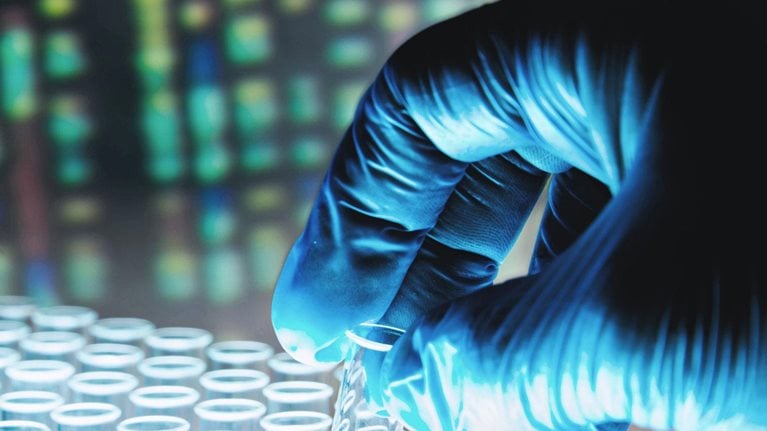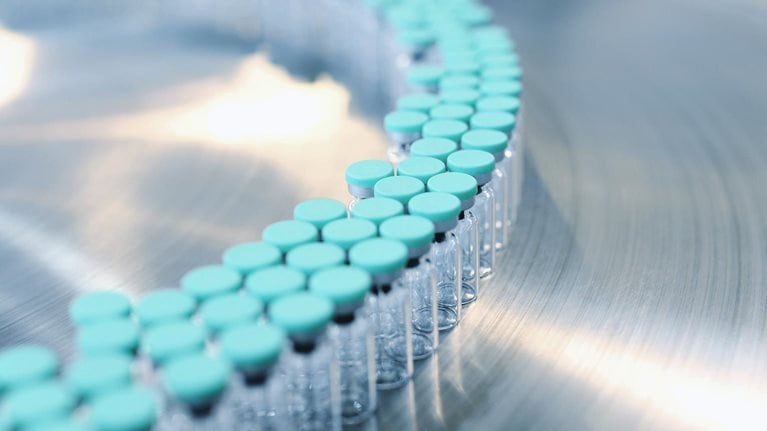As the urgent search for a coronavirus vaccine continues, pharmaceutical researchers are also studying the potential for known and new therapies to help those who have been stricken with COVID-19. Cedric Francois, the CEO of pharmaceutical company Apellis, sees promise in using various approaches, such as plasmapheresis and immunotherapy, to mitigate the novel coronavirus’s effects—effects that he experienced firsthand, after contracting COVID-19. (Disclaimer: Apellis, Francois’s company, specializes in immunotherapy drugs.) Francois, who is also a physician, spoke on April 23 with McKinsey senior partner David Quigley about the prospect of using immunotherapy to prevent deaths from COVID-19. A condensed and edited version of Francois’s remarks appears below.
How COVID-19 kills
I’ve never been sicker than I was when I had COVID-19. I went through the biphasic nature of this disease. During the first week, you haven’t developed antibodies yet. That’s probably why I had more mild, flu-like symptoms. But then when your immune system kicks in, it’s important that there is a balanced, well-controlled immune reaction. Certainly, some elements of that immune reaction to COVID-19 tend to get out of control, and they seem to be the main driver of mortality. It’s probably not the virus that kills us, but the way in which our immune systems react that kills us. That tends to kick in after one week. And it did with me.
Outlook for potential treatment options
Plasmapheresis, a treatment method that is a hundred years old or more, is where you take blood from a person who has been infected and has antibodies and transfer the antibodies to another person. While there hasn’t been a full randomized control trial to show that plasmapheresis works for COVID-19, a lot of anecdotal evidence suggests that it does significantly improve mortality.
There are a lot of patients who can give plasma, but there’s also a logistical challenge with getting that plasma to patients. The Red Cross is trying to tackle that now. I personally hold a lot of hope for convalescent plasma to help people with COVID-19, once we can solve the logistical issues and, importantly, identify a plasma that is truly effective.
That brings us to interleukin-6 inhibitors [a type of drug that is used to treat some inflammatory diseases, among other conditions], which interact at various levels, either with interleukin-6 or with the receptor for interleukin-6. There too, the anecdotal evidence so far looks promising. We have a large armamentarium of drugs available that we can try.
COVID-19 treatment timelines
Whether we speak about vaccines or antivirals, it’s one thing to treat a hundred people. It’s a very different thing to treat potentially millions and millions of people. If you start early in the disease and treat people who have fever, or you treat the people who are at risk of having the disease, that creates enormous demands.
But suppose you are able to take the five percent of diagnosed people who are at risk of going to the ICU, and you can prevent those people from ending up in the ICU—or, even better, you take people who are in the ICU on a ventilator—then the mortality numbers go down in a highly meaningful way. And your demands for a treatment are two orders of magnitude less than they would be for a drug that is administered earlier. That happens to be the point at which these anti-inflammatory drugs that are on the market or in advanced clinical testing could be introduced and may help us reduce mortality.
Whether we speak about vaccines or antivirals, it’s one thing to treat a hundred people. It’s a very different thing to treat potentially millions and millions of people.
Finding inspiration
The Louisville Healthcare CEO Council brings together the CEOs of the 12 largest healthcare companies in Louisville. It includes the CEOs of the three large hospital systems in the state of Kentucky—three entities that normally compete. They came together and said, “Look, we want to help healthcare workers with antibody testing and RT-PCRs [reverse transcription–polymerase chain reaction, a type of coronavirus test], so they can know what the state of their immunity is.”
They locked arms, forgot about competition, and each paid their share. Something that would have been unthinkable until recently. They took the same approach to plasma collection here in the state of Kentucky. They’re literally sharing hospital resources with no questions asked, putting patients first. You see that at every level. It truly restores your faith in humanity.
Comments and opinions expressed by interviewees are their own and do not represent or reflect the opinion, policy, or position of McKinsey & Company. These materials reflect general insight based on currently available information and do they contain all the information needed to determine a future course of action. Such information has not been independently verified and is inherently uncertain. These materials are not a guarantee of results and cannot be relied upon. These materials do not constitute policy advice or legal, medical or other regulated advice. Particularly in light of rapidly evolving conditions, these materials are provided “as is” solely for information purposes without any representation or warranty, and all liability is expressly disclaimed. References to specific products or organizations are solely for illustration and do not constitute any endorsement or recommendation.


